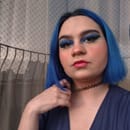Jane Austen, Mary Shelley, Lucy Maud Montgomery. It’s quite an easy task to point out our favorite women writers throughout history – with so many books and novels that have been written, their legacy has become quite notorious. But there’s a curious thing about these amazing women: the major part of them never signed their pieces with their own name. They published under a male or a neutral-gender pen name! Before gender bias was eliminated from literature, a lot of sexist events took place amongst this scenario, which lead the female writers to make the choice of not revealing their real name or their gender.
One of these sexist events was starred by the poet Laureate Robert Southey, in late 1836, which in a response to Emily Bronte, has written in a letter: “Literature cannot be the business of a woman’s life, and it ought not to be.” But in nowadays we may be aware that Mr. Southey was, in fact, mistaken. There are a few women writers whom had changed literature history with their daring behaviour and art.
Get to know the main ones on the list below!
- Mary Ann Evans, a.k.a. George Eliot
-
Born in Warwickshire, England, in 1819, Mary Ann Evans adhered the male pen name George Eliot in an effort to avoid female stereotyping. She would go on to write Middlemarch, a landmark narrative of realism and psychological insight considered one of the best novels ever written. Even Virginia Woolf described the masterpiece as “one of the few british romances for adults” in an article about Evans published in 1919.
Evans was a poet, a novelist, a translator and a well aware of gender bias in literature. Her masculine nom de plume not only gave her notoriety, but also worked as a protection to her private life, since she already had herself involved in a scandalous relationship with a married man.
- Amandine Dupin, a.k.a. George Sand
-
In France, at the same 19th century as Evans, George Sand left his legacy in literature. He was described by Fiódor Dostoiévski as the occupant of “the first place in the new writer’s line”. Novelist and memorialist, Amandine Dupin wrote more than 80 books under the nom de plume of George Sand. Pioneer of the french feminism, Dupin was present at the most important soirées of her time, and was friends with Franz Liszt, Honoré de Balzac, Eugène Delacroix, Pierre Lerroux e Victor Hugo.
It is said that Victor Hugo even wrote “Je pleure une morte, et je salue une immortelle” at the time of her death. The authoress regularly wore men’s clothing, smoked in public, and was unapologetic in her sexual pursuits — acts that shocked the genteel social circles.
- The Bronte sisters, a.k.a. the Bell brothers
-
Considered three of the most famous english writers, the sisters Charlotte, Emily and Anne Bronte started their literary career using pseudonyms — Currer, Ellis e Acton Bell, respectively — and published, in 1847, their novels Jane Eyre, Wuthering Heights and Agnes Gray. Charlotte later explained in a letter the justificative behind the move in an 1850 preface to Wuthering Heights and Agnes Grey: “We did not like to declare ourselves women, because — without at that time suspecting that our mode of writing and thinking was not what is called ‘feminine’ — we had a vague impression that authoresses are liable to be looked on with prejudice”.
- Violet Paget, a.k.a. Vernon Lee
-
The britanic Violet Paget has written about art, aesthetic, travels and even has produced supernatural fiction — her ghostly victorian tales are full of implicit connotations of lesbianity, crossdressers and sexual scenarios. Self-declared feminist, she had to sign her works as Vernon Lee in order to publish them. Her piece includes from analytic books about the italian renaissance art to memorialistic works like The Spirit of Rome (1906).
Even though, in nowadays, there is more respect towards female writers, it’s undeniable that sometimes gender may be an excuse to retaliation. J. K. Rowling, well-known as the Harry Potter saga’s author, has published in 2013 the crime thriller The Cuckoo’s Calling under the pseudonym Robert Galbraith. In her own words, she explained that: “I really wanted to go back to the beginning of a writing career in this new genre, to work without hype or expectation and to receive totally unvarnished feedback”. In short, the effort and the search for respect with regard to women in the literature scenario still far beyond of being won, but we may have hope and also be inspired by these astounding authoresses!
——————————————————–
The article above was edited by Helena Cardoso.
Liked this type of content? Check Her Campus Casper Libero home page for more!



